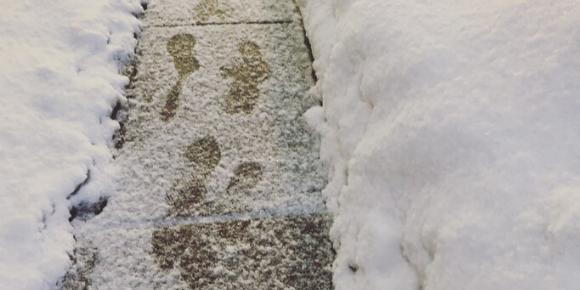
How the Ongoing Storm Doctrine Affects Landowner’s Liability for Not Clearing Snow and Ice
- posted: Jan. 03, 2024
- Premises Liability
Commercial property owners and managers must keep their premises and public walkways free of snow and ice accumulation. This is part of a landowner’s general duty to exercise ordinary, reasonable care to protect visitors and other people who may be expected on the premises. However, winter storms often pose unique circumstances. A frequently encountered question is how promptly snow and ice must be cleared in order for the landowner’s duty to be fulfilled.
Several northern states, including New Jersey, have adopted a rule known as the “ongoing storm” doctrine, which provides that commercial owners and managers don’t have to remove snow and ice on their property until a reasonable time after the storm is over. This rule limits the right of an injured pedestrian or visitor to sue for damages, but it is not an absolute bar to suit.
In a 2021 case adopting the rule, the New Jersey Supreme Court reasoned that “it is categorically inexpedient and impractical to remove and reduce hazards from snow and ice while the precipitation is ongoing.” Commercial property owners and managers or their contractors would have to be constantly engaged in snow and ice clearing throughout a storm that could last several hours.
However, the court carved out two significant exceptions to the ongoing storm doctrine. A property owner or manager might still be held liable for damages in either of these situations:
- Their actions measurably increased the risk of injury from snow and ice, such as by beginning to shovel snow but leaving a residue that freezes and creates an icy surface.
- They allowed a known dangerous condition to persist, such as inadequate drainage or uneven surfaces, which heightened the dangers to pedestrians or visitors.
A plaintiff alleging injuries suffered in a slip and fall during an ongoing storm must prove that the owner’s or manager’s direct actions or failure to remediate a known hazard contributed to the accident.
The Supreme Court did not specify what is a “reasonable time” after the storm for removing ice or snow. The time limit therefore is measured by the totality of the circumstances, such as the severity of the storm, the resources available for snow and ice removal and other factors. Also relevant is whether there is a municipal ordinance requiring snow and ice removal within a specific time period.
All of this means that the ongoing storm doctrine is not a complete shield against property owners’ and managers’ liability. If you are injured in a wintertime slip and fall on commercial premises or on an abutting sidewalk, an experienced premises liability attorney can work to help you recover compensation for your medical costs and related expenses.
Seigel Law in Ridgewood assists people who have been hurt in slip and fall accidents on others’ property throughout northern New Jersey. For a free consultation, please call (PHONE} or contact us online.

